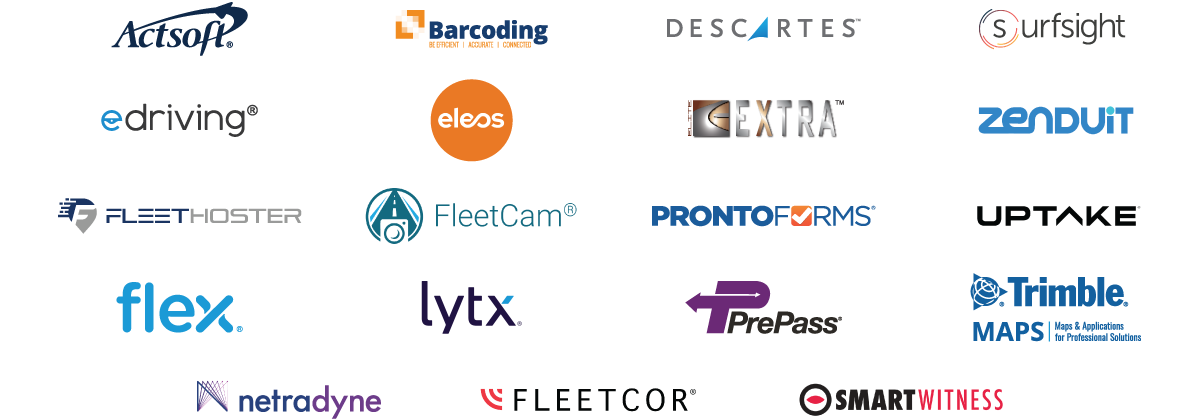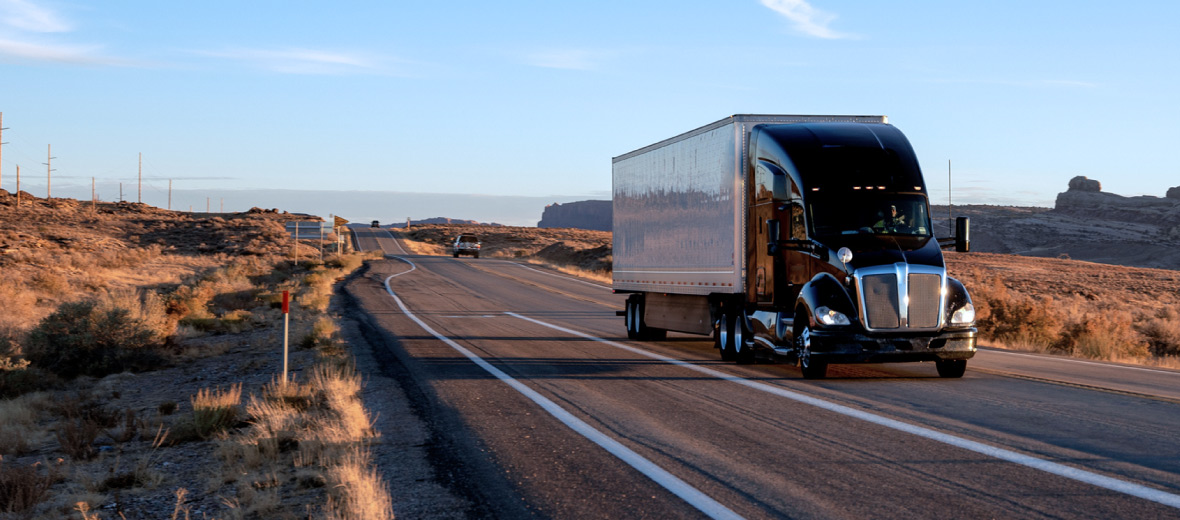Geotab Connect 2020 recap
Geotab’s biggest conference to date was held from January 13-16, 2020 at the San Diego Convention Center.

If you could not attend or livestream Connect 2020, here is what happened on Day 1.
Day 1 recap and keynote summaries
After an exciting Welcome Dinner on the USS Midway, Geotab Connect 2020 officially kicked off! CEO Neil Cawse welcomed all guests to the conference and discussed the importance of a connected ecosystem and how this will impact our future. He stressed the importance of data, saying, “Not collecting data is like not being able to see around the corner.”
Other keynote presenters on Day 1 included:
- Colin Sutherland, Geotab — Welcome to Geotab Connect 2020
- Evan Speer — State of California Telematics Program
- David Munn — Telematics for Federal Government
- Brandon Nixon, Lytx
- Matt Jennings, SAP
- Jean Pilon-Bignell, Geotab — The Digital Transformation of Government
A thriving ecosystem
Geotab builds an active, two-way relationship with customers and partners. In his keynote address, Neil Cawse discussed the importance of offering the best possible advice and products. He says, “We are the experts, customers are looking to us for guidance. Make sure the customers always have a choice. If you truly want to have an open and vibrant ecosystem, that’s the way it has to be.” He highlighted Geotab’s open-platform API, which ensures customer freedom and avoids uncompetitive lock-in. “We understand what we can do to solve their problems,” he says, speaking of customers, “and then we build it into our products.” Given the choice to make a product cheaper, or better, Geotab will always choose to create a better product.
In reference to Geotab’s recent recognition by ABI Research as the World’s #1 Telematics provider, Cawse says that Geotab’s journey has only just begun. He is looking forward to continuing the innovation into 2020 and beyond, touching on developments like smart cities and video telematics.
Fleet electrification is increasing and here to stay
Although the media has hyped autonomous vehicles, electric vehicles are a reality and a fleet trend to watch for in 2020. “Electrification is coming fast and you really need to learn more,” says Cawse.
Organizations can tap into their telematics insights to make the transition easier. Geotab offers a tool that analyzes fleet telematics over a set period and then creates an electrification recommendation based on each vehicle’s driving patterns. For fleets that are going green, the Electric Vehicle Suitability Assessment (EVSA) is a way to help support the success of their EV program.
Geotab adds a new pillar: sustainability
Colin Sutherland, AVP at Geotab, discussed each pillar of innovation and how Geotab has developed. The pillars include Productivity, Safety, Fleet Optimization, Compliance, Expandability, and our newest, Sustainability. Telematics is critical to creating sustainable fleets, whether it is used to optimize charging locations, improve routing, manage idling and more. Learn more about Geotab’s pillars of innovation at Geotab.com.
Sutherland also showcased Geotab’s growth by comparing the first Connect conference six years ago, which consisted of 250 attendees, to a packed conference of over 1,500 attendees in 2020.
In his keynote, Sutherland also touched on ways that people can learn about telematics and using MyGeotab. The Geotab Community is an easy way to find answers to top questions and connect with experts in telematics. Visit the forum to find “curated answers by Geotab staff, ” says Sutherland. If you’re new to the community, go to Getting Started. Other sections to explore include Questions, the Developers area and the Knowledge Base. Visit community.geotab.com today and become a member.
Another way to stay connected is through the Geotab Blog, which has over 600 articles on fleet management to date. The article “What can 6,000 electric vehicles tell us about EV battery health?,” for example, is a fascinating look at EV battery degradation based on research into the real-world battery performance of electric vehicles. Within the article is a link to an interactive EV battery degradation comparison tool, which allows you to look up the average battery degradation for different vehicle makes and model years.
This article by Charlotte Argue, Senior Manager, Fleet Electrification for Geotab, takes an objective look into this issue and shows that there hasn’t been a significant decline for the majority of EVs on the road.
Going beyond traditional telematics
Jean Pilon-Bignell, Vice President Business Development, Government and Smart City gave attendees an overview of how Geotab is partnering with governments and municipalities in his talk, “Digital transformation of government.”
In 2019, three historic contracts were announced.
- Geotab was awarded the largest single-source telematics contract to date with the U.S. GSA Fleet, a division of GSA (General Services Administration). GSA Fleet operates vehicles all over the world, working with the U.S. military and also state and local governments. It is widely recognized as one of the most complex fleet organizations in the world.
- The State of California awarded Geotab a single-source Blanket Purchase Agreement for telematics.
- Geotab is supporting New York City with their NYC Vision Zero program, and goal to become the “world’s safety big city.”. New York City will hopefully serve as a benchmark to help other Vision Zero cities increase efficiency, safety and reduce traffic fatalities.
“We are literally transforming the way public works operates,” noted Pilon-Bignell. Using telematics, governments can improve operations like snow clearing, street sweeping, sanitation and policing. “Our goal is to connect not just the vehicle, but all the controllers on the vehicles.”
There is exciting work happening around 511 portals to allow citizens to see the status of service delivery in their area in real-time. In the future, telematics could help increase the transparency of these public services; for example, citizens could see the location of snow plows, road conditions or first-response vehicles. Geotab is working with cities on similar initiatives, “helping them share live level of service metrics with their constituents.”
In addition, Geotab is working on smart intersections, helping municipalities leverage telematics data to understand dwell time and movements at lights. By streamlining traffic at intersections, organizations can run more efficient traffic signal operations for safety and sustainability benefits such as reduce greenhouse gas emissions.
Major announcements
Two million subscribers
Geotab announced it has surpassed 2 million subscribers, securing its position as the world's largest commercial telematics company. View the press release and our journey at a glance here.
Marketplace Exhibitors
A key highlight of day 1 was the Exhibitor Show Floor, with strong showings from our Platinum Partners:

New to Connect, our Marketplace Side Stage was a success with presentations from ProntoForms, Flex, Fleet Hoster, Lytx, eDriving, Surfsight, Trimble Video, and Drivewyze. Stay tuned for the recordings!
Day 2 and 3 recap
The last two days of Geotab Connect were a huge success!
Attendees were able to choose from a wide variety of Breakout Sessions on topics such as Government, Geotab Talks, Learning Center and Big Data, as well as informative sessions on strategy and business. The Marketplace Side Stage, meanwhile, featured the latest in automated driving training, driver cameras and fleet innovation.
The day concluded with presentations from telematics leaders Mike Branch, Chad Jennings and Tom Raftery, followed by the Awards Ceremony, where attendees were honored with awards including 100k Milestone, Ecosystem Recognition, Smart City Innovation and more. Read on for key themes from Connect 2020 and to learn about this year’s expected trends.
Data is the future
With two million connected vehicles, Geotab is committed to helping others accelerate in the data space. “We want all of you to be on the same page as us at Geotab so you can start to innovate the same way we do,” says Daniel Dodgeson, AVP, Data Engineering at Geotab. This is why Geotab has introduced the Data Science Package — a turnkey platform to help large fleets extract insights from their own big data.
Mike Branch, Vice President, Data & Analytics, further highlighted the importance of data not only today, but in the future, too. “Data is truly oxygen. It is essential for fleet productivity, safety, sustainability, compliance, innovation and much more.” Data access, he says, is not only for fleets and commercial use, but also for public good. Repairs, worthiness service, insurance services, emission testing and smart cities are just a few ways data access can benefit the public.
Helping fleets succeed with EVs
Megan Allen, EV Solutions Engineering Manager and Sarah Kerr, Senior EV Product Manager spoke about what Geotab has accomplished for fleets with EVs in 2019. They highlighted tools like real-time charging on a map, notifications through custom rules, an EV charging reports and the ability to identify EV performances.
A few best practices for fleets they mentioned include:
- Always remember to plug in your vehicle. Notify managers or drivers of real-time state of charge with rule-setting and alerts.
- Identify drivers that may need an EV refresh and if there are any knowledge gaps, do not be afraid to address them.
Fleets are provided with a report that includes: range assurance with best fit analysis, lifetime cost and financial analysis and an environmental impact analysis that calculates fuel and CO2 emissions and reduction. To learn more about Geotab’s Electric Vehicle Suitability Assessment, please visit https://www.geotab.com/fleet-management-solutions/electric-vehicles/.
MyGeotab highlights and the 2020 roadmap
This year marks the 10th anniversary of MyGeotab. Within 10 years, MyGeotab has become a vital source of information for many fleet professionals. In December of 2019 alone, there were 17 million page views of MyGeotab.
Vik Sridhar, Senior Engineering Product Manager, MyGeotab emphasized that Geotab is focused on providing the best customer service and ensuring users continue getting what they need. “Security is very important for us when we look towards features or designing new things,” For this reason, he says, Geotab has introduced password expiry, user lockout feature and control of which user authorization types to allow. For 2020, five themes to focus on include:
- Planning for the future
- Analytics
- Customer experience
- SDK
- Performance and scalability
Another thing to look out for in the future, says Sridhar, is the introduction of asset types: “We want MyGeotab to be your IOT hub. We want you to take any device, place it on an asset and track it on MyGeotab. MyGeotab won’t only be for vehicles, but other assets as well. For example, generators, medical devices, containers etc. MyGeotab will evolve into an IOT hub.”
Getting smart about trash
Cities are turning to data-driven tools to meet the growing demands of waste and recycling management. Since sanitation operations are huge cost centres for many municipalities, more cities are adopting technology and practices to do more with less.
In the breakout session on waste and recycling management, a SaaS Smart City platform was highlighted, which is a smartphone app, device and portal. It helps municipalities track key metrics such as level of service and missed pickups which, at present, is practically impossible to verify. Many municipalities are interested in engaging more with their constituents and help desk with complaints regarding levels of service (in this case for sanitation) such as late or early garbage pickup, or complaints about how it was picked up. With this Smart City platform, municipalities have access to data that allows them to manage complaints, help educate citizens on best practices for their waste and recycling, and save time and money with optimized routes.
Major announcements on day 2 and 3
Here are more exciting announcements from Geotab Connect 2020.
- Geotab introduces the EV Battery Degradation Tool, which shows how real-world conditions like climate and more impact battery health.
- Geotab launches Electric Vehicle Suitability Assessment to help fleets that are going electric find the best-fit EVs that can do the work and make the most financial sense.
- Geotab and Eleos launch UNIFY, an integrated, customizable solution for Class 8 transportation and logistics fleets.
- Geotab announces launch of Geotab Integrated Solution for General Motors
- Geotab welcomes new Marketplace Partner: Drivewyze. DriveWyze PreClear is a weigh station bypass service that integrates with the Geotab Drive App.
Thank you!
Thank you everyone for attending. Stay up-to-date on what’s happening in the world of fleet and subscribe to the Geotab Blog to get our monthly newsletter and special announcements.
Subscribe to get industry tips and insights
The Geotab Team write about company news.
Table of Contents
- Day 1 recap and keynote summaries
- A thriving ecosystem
- Fleet electrification is increasing and here to stay
- Geotab adds a new pillar: sustainability
- Going beyond traditional telematics
- Major announcements
- Day 2 and 3 recap
- Data is the future
- Helping fleets succeed with EVs
- MyGeotab highlights and the 2020 roadmap
- Getting smart about trash
- Major announcements on day 2 and 3
- Thank you!
Subscribe to get industry tips and insights
Related posts

What is government fleet management software and how is it used?
April 10, 2025
3 minute read

Beyond the road: Enhancing school bus interior safety with advanced technology
April 10, 2025
5 minute read

60+ trucking industry statistics: trends + outlook for 2025
April 8, 2025
6 minute read

Enhancing student bus safety: Combating distracted driving in the digital age
April 7, 2025
6 minute read

How a data driven policing environment elevates your department’s potential
March 24, 2025
4 minute read
